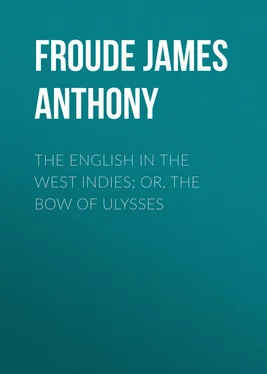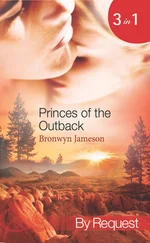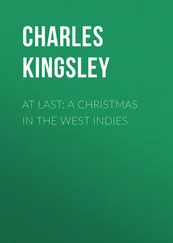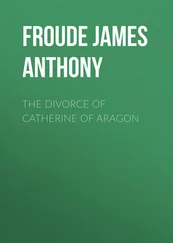James Froude - The English in the West Indies; Or, The Bow of Ulysses
Здесь есть возможность читать онлайн «James Froude - The English in the West Indies; Or, The Bow of Ulysses» — ознакомительный отрывок электронной книги совершенно бесплатно, а после прочтения отрывка купить полную версию. В некоторых случаях можно слушать аудио, скачать через торрент в формате fb2 и присутствует краткое содержание. Жанр: foreign_antique, foreign_prose, Путешествия и география, на английском языке. Описание произведения, (предисловие) а так же отзывы посетителей доступны на портале библиотеки ЛибКат.
- Название:The English in the West Indies; Or, The Bow of Ulysses
- Автор:
- Жанр:
- Год:неизвестен
- ISBN:нет данных
- Рейтинг книги:5 / 5. Голосов: 1
-
Избранное:Добавить в избранное
- Отзывы:
-
Ваша оценка:
- 100
- 1
- 2
- 3
- 4
- 5
The English in the West Indies; Or, The Bow of Ulysses: краткое содержание, описание и аннотация
Предлагаем к чтению аннотацию, описание, краткое содержание или предисловие (зависит от того, что написал сам автор книги «The English in the West Indies; Or, The Bow of Ulysses»). Если вы не нашли необходимую информацию о книге — напишите в комментариях, мы постараемся отыскать её.
The English in the West Indies; Or, The Bow of Ulysses — читать онлайн ознакомительный отрывок
Ниже представлен текст книги, разбитый по страницам. Система сохранения места последней прочитанной страницы, позволяет с удобством читать онлайн бесплатно книгу «The English in the West Indies; Or, The Bow of Ulysses», без необходимости каждый раз заново искать на чём Вы остановились. Поставьте закладку, и сможете в любой момент перейти на страницу, на которой закончили чтение.
Интервал:
Закладка:
I had visited our great Pacific colonies. Circumstances led me afterwards to attend more particularly to the West ladies. They were the earliest, and once the most prized, of all our distant possessions. They had been won by the most desperate struggles, and had been the scene of our greatest naval glories. In the recent discussion on the possibility of an organised colonial federation, various schemes came under my notice, in every one of which the union of the West Indian Islands under a free parliamentary constitution was regarded as a necessary preliminary. I was reminded of a conversation which I had held seventeen years ago with a high colonial official specially connected with the West Indian department, in which the federation of the islands under such a constitution was spoken of as a measure already determined on, though with a view to an end exactly the opposite of that which was now desired. The colonies universally were then regarded in such quarters as a burden upon our resources, of which we were to relieve ourselves at the earliest moment. They were no longer of special value to us; the whole world had become our market; and whether they were nominally attached to the Empire, or were independent, or joined themselves to some other power, was of no commercial moment to us. It was felt, however, that as long as any tie remained, we should be obliged to defend them in time of war; while they, in consequence of their connection, would be liable to attack. The sooner, therefore, the connection was ended, the better for them and for us.
By the constitutions which had been conferred upon them, Australia and Canada, New Zealand and the Cape, were assumed to be practically gone. The same measures were to be taken with the West Indies. They were not prosperous. They formed no outlet for British emigration; the white population was diminishing; they were dissatisfied; they lay close to the great American republic, to which geographically they more properly belonged. Representative assemblies under the Crown had failed to produce the content expected from them or to give an impulse to industry. The free negroes could not long be excluded from the franchise. The black and white races had not amalgamated and were not inclining to amalgamate. The then recent Gordon riots had been followed by the suicide of the old Jamaican constitution. The government of Jamaica had been flung back upon the Crown, and the Crown was impatient of the addition to its obligations. The official of whom I speak informed me that a decision had been irrevocably taken. The troops were to be withdrawn from the islands, and Jamaica, Trinidad, and the English Antilles were to be masters of their own destiny, either to form into free communities like the Spanish American republics, or to join the United States, or to do what they pleased, with the sole understanding that we were to have no more responsibilities.
I do not know how far the scheme was matured. To an outside spectator it seemed too hazardous to have been seriously meditated. Yet I was told that it had not been meditated only but positively determined upon, and that further discussion of a settled question would be fruitless and needlessly irritating.
Politicians with a favourite scheme are naturally sanguine. It seemed to me that in a West Indian Federation the black race would necessarily be admitted to their full rights as citizens. Their numbers enormously preponderated, and the late scenes in Jamaica were signs that the two colours would not blend into one, that there might be, and even inevitably would be, collisions between them which would lead to actions which we could not tolerate. The white residents and the negroes had not been drawn together by the abolition of slavery, but were further apart than ever. The whites, if by superior intelligence they could gain the upper hand, would not be allowed to keep it. As little would they submit to be ruled by a race whom they despised; and I thought it quite certain that something would happen which would compel the British Government to interfere again, whether we liked it or not. Liberty in Hayti had been followed by a massacre of the French inhabitants, and the French settlers had done no worse than we had done to deserve the ill will of their slaves. Fortunately opinion changed in England before the experiment could be tried. The colonial policy of the doctrinaire statesmen was no sooner understood than it was universally condemned, and they could not press proposals on the West Indies which the West Indians showed so little readiness to meet.
So things drifted on, remaining to appearance as they were. The troops were not recalled. A minor confederation was formed in the Leeward Antilles. The Windward group was placed under Barbadoes, and islands which before had governors of their own passed under subordinate administrators. Local councils continued under various conditions, the popular element being cautiously and silently introduced. The blacks settled into a condition of easy-going peasant proprietors. But so far as the white or English interest was concerned, two causes which undermined West Indian prosperity continued to operate. So long as sugar maintained its price the planters with the help of coolie labour were able to struggle on; but the beetroot bounties came to cut from under them the industry in which they had placed their main dependence; the reports were continually darker of distress and rapidly approaching ruin; petitions for protection were not or could not be granted. They were losing heart – the worst loss of all; while the Home Government, no longer with a view to separation, but with the hope that it might produce the same effect which it produced elsewhere, were still looking to their old remedy of the extension of the principle of self-government. One serious step was taken very recently towards the re-establishment of a constitution in Jamaica. It was assumed that it had failed before because the blacks were not properly represented. The council was again made partially elective, and the black vote was admitted on the widest basis. A power was retained by the Crown of increasing in case of necessity the nominated official members to a number which would counterbalance the elected members; but the power had not been acted on and was not perhaps designed to continue, and a restless hope was said to have revived among the negroes that the day was not far off when Jamaica would be as Hayti and they would have the island to themselves.
To a person like myself, to whom the preservation of the British Empire appeared to be the only public cause in which just now it was possible to feel concern, the problem was extremely interesting. I had no prejudice against self-government. I had seen the Australian colonies growing under it in health and strength with a rapidity which rivalled the progress of the American Union itself. I had observed in South Africa that the confusions and perplexities there diminished exactly in proportion as the Home Government ceased to interfere. I could not hope that as an outsider I could see my way through difficulties where practised eyes were at a loss. But it was clear that the West Indies were suffering, be the cause what it might. I learnt that a party had risen there at last which was actually in favour of a union with America, and I wished to find an answer to a question which I had long asked myself to no purpose. My old friend Mr. Motley was once speaking to me of the probable accession of Canada to the American republic. I asked him if he was sure that Canada would like it. 'Like it?' he replied. 'Would I like the house of Baring to take me into partnership?' To be a partner in the British Empire appeared to me to be at least as great a thing as to be a State under the stars and stripes. What was it that Canada, what was it that any other colony, would gain by exchanging British citizenship for American citizenship? What did America offer to those who joined her which we refused to give or neglected to give? Was it that Great Britain did not take her colonies into partnership at all? was it that while in the United States the blood circulated freely from the heart to the extremities, so that 'if one member suffered all the body suffered with it,' our colonies were simply (as they used to be called) 'plantations,' offshoots from the old stock set down as circumstances had dictated in various parts of the globe, but vitally detached and left to grow or to wither according to their own inherent strength?
Читать дальшеИнтервал:
Закладка:
Похожие книги на «The English in the West Indies; Or, The Bow of Ulysses»
Представляем Вашему вниманию похожие книги на «The English in the West Indies; Or, The Bow of Ulysses» списком для выбора. Мы отобрали схожую по названию и смыслу литературу в надежде предоставить читателям больше вариантов отыскать новые, интересные, ещё непрочитанные произведения.
Обсуждение, отзывы о книге «The English in the West Indies; Or, The Bow of Ulysses» и просто собственные мнения читателей. Оставьте ваши комментарии, напишите, что Вы думаете о произведении, его смысле или главных героях. Укажите что конкретно понравилось, а что нет, и почему Вы так считаете.












